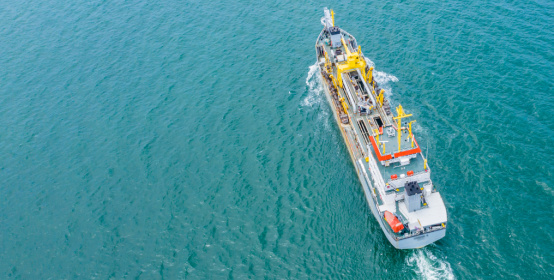
The quest for valuable resources has always driven human exploration and innovation. From the discovery of precious metals on land to the extraction of oil beneath the ocean floor, humanity's relentless pursuit of resources has often been the catalyst for technological advancements. In recent years, a new frontier has emerged in this pursuit: deep sea mining. This practice involves extracting minerals and resources from the ocean floor, a realm that remains largely unexplored and unexploited. However, the question lingers: Is deep sea mining truly worth it?
The allure of deep sea mining is undeniable. The ocean floor is believed to hold vast reserves of valuable minerals such as copper, nickel, cobalt, and rare earth elements – essential components in modern technology. These minerals are crucial for manufacturing electronic devices, renewable energy technologies, and even electric vehicles. As terrestrial deposits of these resources become scarcer, the deep sea presents a potential solution to meet growing global demands.
From an engineering perspective, deep sea mining offers a tantalizing canvas for innovation. Engineers are tasked with designing and building equipment that can withstand the extreme pressures, corrosive environments, and subzero temperatures of the deep ocean. Remotely operated vehicles (ROVs) equipped with cutting-edge technology must be developed to navigate the depths and extract minerals with precision. These engineering feats not only push the boundaries of technology but also present opportunities for economic growth and job creation in the engineering sector.
While deep sea mining holds the promise of technological advancement, it is not without its share of ethical and environmental concerns. The ocean floor is home to unique and often fragile ecosystems that have evolved over millions of years. The disruptive impact of mining operations on these ecosystems is a cause for serious concern. Sediment plumes generated by mining can suffocate marine life, and the noise and vibrations from mining equipment can disturb delicate habitats. Furthermore, the potential release of toxins during mining operations could have far-reaching consequences for marine biodiversity.
The ethical dilemma surrounding deep sea mining raises fundamental questions about humanity's stewardship of the planet. As engineers and innovators, we have a responsibility to weigh the potential benefits of resource extraction against the irreversible damage that may be inflicted on our oceans. The pursuit of short-term economic gains must be carefully balanced with the preservation of these unique and invaluable ecosystems for future generations.
Critics of deep sea mining point to the uncertainty of market demand and the viability of extraction projects. The economic feasibility of deep sea mining hinges on stable mineral prices and consistent demand for the extracted resources. Given the dynamic nature of global markets, the financial sustainability of deep sea mining ventures remains a critical question mark. The capital-intensive nature of these projects necessitates careful evaluation of potential risks and rewards.
Navigating the regulatory landscape of deep sea mining presents yet another layer of complexity. International waters are governed by a patchwork of regulations, treaties, and agreements that require harmonization to effectively manage mining activities. Establishing a robust regulatory framework that enforces environmental protection, social responsibility, and sustainable practices is essential. Engineers, policymakers, and environmental experts must collaborate to shape regulations that strike a delicate balance between resource extraction and environmental conservation.
As the world grapples with the question of whether deep sea mining is worth it, emerging technologies offer potential solutions to some of the challenges involved. Innovations in robotics, automation, and remotely operated systems could minimize the need for direct human intervention in hazardous deep sea environments. Advancements in monitoring and surveillance technologies can help ensure compliance with environmental regulations and detect any unintended consequences of mining operations.
The complexity of the deep sea mining dilemma demands collaboration on a global scale. Engineers, environmentalists, policymakers, scientists, and stakeholders must come together to explore alternatives, address concerns, and develop responsible mining practices. An open dialogue that transcends national boundaries is essential to navigating the intricacies of this multifaceted issue.
The question of whether deep sea mining is worth it defies a simple answer. It is a multidimensional inquiry that requires a comprehensive assessment of economic, environmental, ethical, and technological factors. As engineers, we are uniquely positioned to drive innovation, develop sustainable solutions, and advocate for responsible resource management. While the potential rewards of deep sea mining are tantalizing, the imperative to protect our oceans and preserve their invaluable ecosystems cannot be ignored. The path forward must be guided by a commitment to balance progress with ethical considerations, innovation with environmental responsibility, and short-term gains with the long-term well-being of our planet.